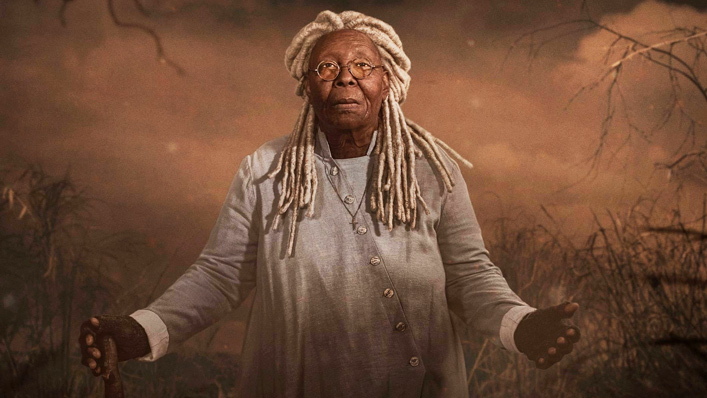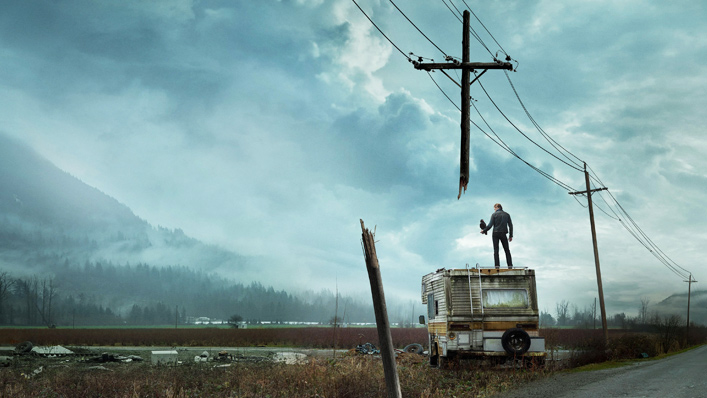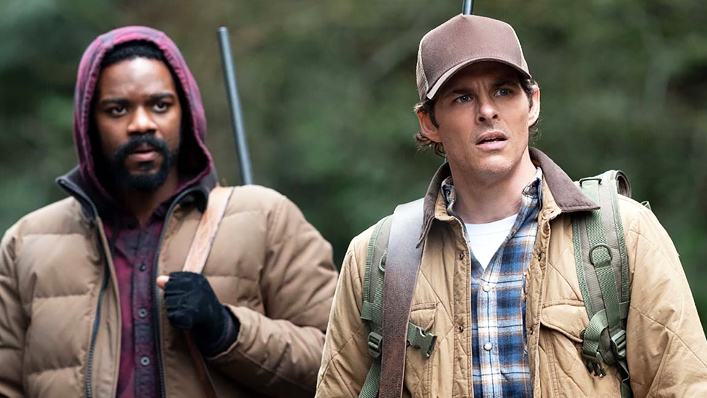The Stand may appeal to forgiving Stepen King fans – but everybody else, beware

Stephen King’s epic 1978 book about the battle between good and evil in a post-pandemic America gets a modern reworking in this ho-hum series (now on Prime Video) bogged down by place-setting and pawn maneuvering, writes critic Travis Johnson.
Perhaps it’s simply appropriate that the latest big budget effort to depict the end of the world is, well, more than a little dull? After all, we’ve had a pretty apocalyptic year and that’s been marked, the odd storming of the Capitol aside, by widespread malaise as we all (well, those of us who could) sheltered in place, took a run at making bread, and got our heads around Zoom. Not with a bang, but with a whimper, as the poet once said.
See also:
* Best new movies & series on Prime Video
* All new movies & series on Prime Video
* All new streaming movies & series
But no: numb disengagement is rarely a design goal in filmmaking, so we have to assume that the showrunners of The Stand, Benjamin Cavell and Josh Boone (whose much-delayed but pretty decent The New Mutants took a critical drubbing last year) kind of dropped the ball on this one. We can’t blame the source material; Stephen King’s 1978 brick of book (revised and expanded in 1990) is a mystical epic about the final battle between good and evil in a post-pandemic America.

It’s one of his most popular and acclaimed works and has already spawned a pretty decent, albeit somewhat dated, adaptation in the from of Mick Garris’ 1994 TV miniseries. You’d think, given we’re in the ‘golden age’ of prestige TV and standards now allow something like Hannibal on network television, that King’s gruesome fancies would be given free rein. Plus you’d think that given we ourselves are in the grip of a global pandemic, that a new riff on The Stand would be a slam dunk.
And you’d be wrong.
The plot is the same. After a weaponized flu virus gets loose and wipes out 99% of the population, the survivors—in America at least—are drawn to one of two opposing moral poles. The good, in that very specific, aw-shucks, a-man-works-with-his-hands, Springsteen & Coors, quietly Baptist American definition of the term, flock to the banner of centenarian prophet Mother Abigail (Whoopi Goldberg, in excellent form) and go about building a kind of communitarian nirvana in Boulder, Colorado. Here we have Texan everyman Stu Redman (James Marden), pregnant teen Frannie Walsh (Odessa Young), college professor Glen Bateman (Greg Kinnear), rock star Larry Underwood (Jovan Adepo) and mute apostle Nick Andros (Henry Zaga).
Meanwhile, Randall Flagg (Alexander Skarsgård), King’s all-purpose plug ‘n’ play avatar of evil, has set up shop in Las Vegas and created a bacchanalian city of sin that looks like a pretty good time if you ignore the gladiator pits. Drawing to him are the likes of loose cannon armed robber Lloyd Henreid (Nat Wolff), the pyromaniac Trashcan Man (Ezra Miller) and a pretty standard roster of ex-bikers, deplorables, as well as people who enjoy public sex and public executions in equal measure. The stage is set for a final combat between good and evil, which sadly doesn’t come in the six episodes made available for preview.
What we get instead is six hours of place-setting, pawn maneuvering, and not much in the way of actual drama. Indeed, the choice has been made to jumble the timeline, jumping us back and forward from pre-to post-apocalypse for the first few episodes, which actually robs the narrative of its slow, implacable build to its climax.
As a writer, King excels at combining and contrasting the mundane and the fantastical—dropping a vampire coven into a small, sleepy Maine Town, or putting a cosmic horror in the form of a cannibalistic clown under a (checks notes) small, sleepy, Maine Town. Here, we get the mundane but not the mystical, for all that the show tries to pepper its running time with signs, portents and visions. The normally reliable Skarsgård never convinces as either a charismatic leader or a manifestation of inhuman evil, which means his threat feels muted, while the well-meaning dithering of the good folk in Boulder Free Zone leaves their side of the narrative stuck in second gear.

The most interesting material emerges when the show deals with the people who are kind of stuck in the middle, like lovelorn wannabe writer and social outcast Harold Lauder (Owen Teague) and the Magdalene-like Nadine Cross (Amber Heard). They are torn between the community of the Boulder folks and Flagg’s seductive call, but even here we soon drift from interesting nuance to soapy histrionics.
The reason is simple: there’s just not enough story to fill nine hours and still cleave to the tenets of screen storytelling. That feels counterintuitive; you could kill a burglar with King’s novel, no sweat, and so you would think that a book like that demands a long running time. But watching this new take on The Stand, you soon realise the sidebars and discursions that work on the page are just flab on the screen—and a lot of judicious cutting would have done the series a power of good.
Wrapping up the sixth episode before sitting down to write this, the most damning observation was that back in ’94 Garris had told the whole tale by this time, whereas now we have a whole three episodes to go, and no compelling reason to stay on the journey. Particularly forgiving King fans may get something out of this, but everyone else is better off sticking with the book.

















